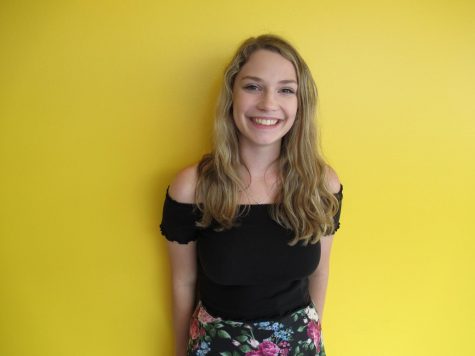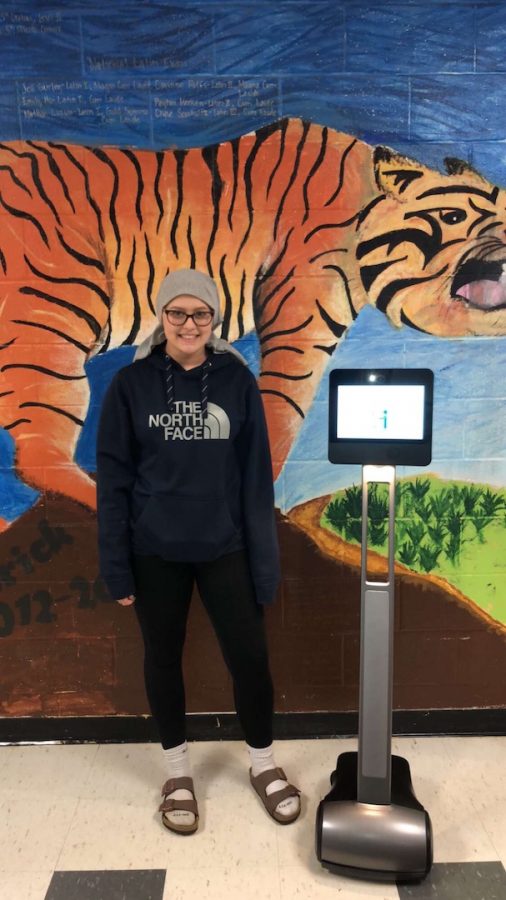Feel the Teal
Student Battles Ovarian Cancer
In a perfect world, there would be no sickness, no hardship or pain. This, unfortunately, isn’t the case for Ari Burriss, a sophomore who was diagnosed with Juvenile Ovarian Cancer in July.
When summer started, Burriss was just a normal teen enjoying her freedom. However, while on vacation with her family in Breckenridge, Colorado, she noticed an intense pain. This lead to her being hospitalized, and the doctors finding a ruptured tumor in her left ovary.
After her first surgery, she had come home and wanted everything to be well. Her hope was shattered when finding out her large granulosa tumor burst and spread throughout her abdomen. The new abundance of tumors resulted in another surgery, which ended in a 12-inch scar.
Ari described what the doctors found,
“[My first tumor] was 13 centimeters, and then I got a bunch of other [smaller tumors because the large one had burst],” she said. “There were 19-24 small tumors.”
As a precaution, doctors recommended that Burriss complete four to six rounds of chemotherapy to eliminate any forming tumors in her body. They told her that if she had waited any longer, the tumors would become fatal.
Burriss said her sickness has become a nuisance in her daily life. She is unable to interact with people as often at risk of getting sick. Mostly, cancer has affected her physically. These effects come in hair loss, lack of energy, poor immune system and loss of appetite.
“The chemo makes me super nauseous, and it drains me,” she said. “It feels like it takes away your air and your energy. If I get up, I feel like I’m going to faint.”
Burriss said her chemo schedule is complicated. Each round is about three weeks and consists of a chemo portion that is followed by two weeks of rest. During the two weeks of rest, she has to be cautious of her surroundings and is able to come to school only when able to. When Burriss isn’t at school, she spends her days at home or in the hospital interacting through a robot she operates.
“I’m always on mute, so when people say, ‘Hi,’ I feel awkward because I have to quickly press unmute, say ‘Hi,’ and then mute it,” Burriss said. “If I don’t say ‘Hi,’ right away, I’m not trying to be rude it just takes a minute. I enjoy the little ‘Hi’s.”
Not only is Ari going to be dealing with cancer now, but she will also have to deal with it well after the treatment is over. Burriss mentioned that the rarity of cancer along with the treatment will lead to a high success rate. Even after the treatment is over, Burriss will still need to monitor her tumor count “After chemo, I get a blood test to track my tumors. This happens every three months. If [the blood tests come back] high then that means I have tumors, if [my blood tests come back low] then I don’t.” Burriss went on to explain that no one in her family has ever had this type of cancer which explains why doctors believe that the success rate is quite high if she follows the treatment plan.
Burriss hopes the treatment goes well and is determined to keep her head up, even at the hardest points in her treatment. She is thankful the school has made it easy for her to still interact with all her friends and stay involved with her classes. Burriss went on to explain how the school has been supportive of her decision to keep involved in school. However, she asks that people be mindful of her robot.
Burriss said, ”Just keep your backpacks out of the way so I don’t hit you. Also, just wait to turn, you don’t need to go around me and then turn. Be patient, because it can [be] frustrating.” Having cancer was not something Burriss expected to have, but she has learned to think positive and keep looking forward to her life after chemo.

Emily Cummings is a 16-year-old junior at BVHS. She has been on the newspaper staff for two years and loves being a part of the Tiger family. Her favorite...

Liya Patel is a senior this year and is starting her third year on staff. She enjoys spending time with her friends and family and loves to go on drives...




